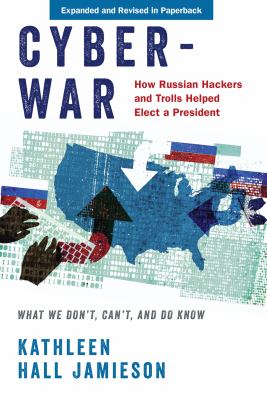
e-Book
|
Cyberwar : how Russian hackers and trolls helped elect a president : what we don't, can't, and do know
Copies
0 Total copies, 0 Copies are in,
0 Copies are out.
Title
Cyberwar : how Russian hackers and trolls helped elect a president : what we don't, can't, and do know
Call No
e-Book
Digital Link
Authors
Subjects
Language
English
Published
New York, NY : Oxford University Press, [2018]
Publication Desc
1 online resource (xiii, 314 pages) : illustrations
ISBN
9780197528969 electronic book
LCCN
2019001423
MLA
APA
Chicago
0
/
0








